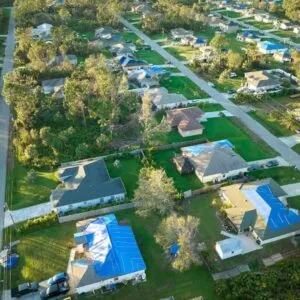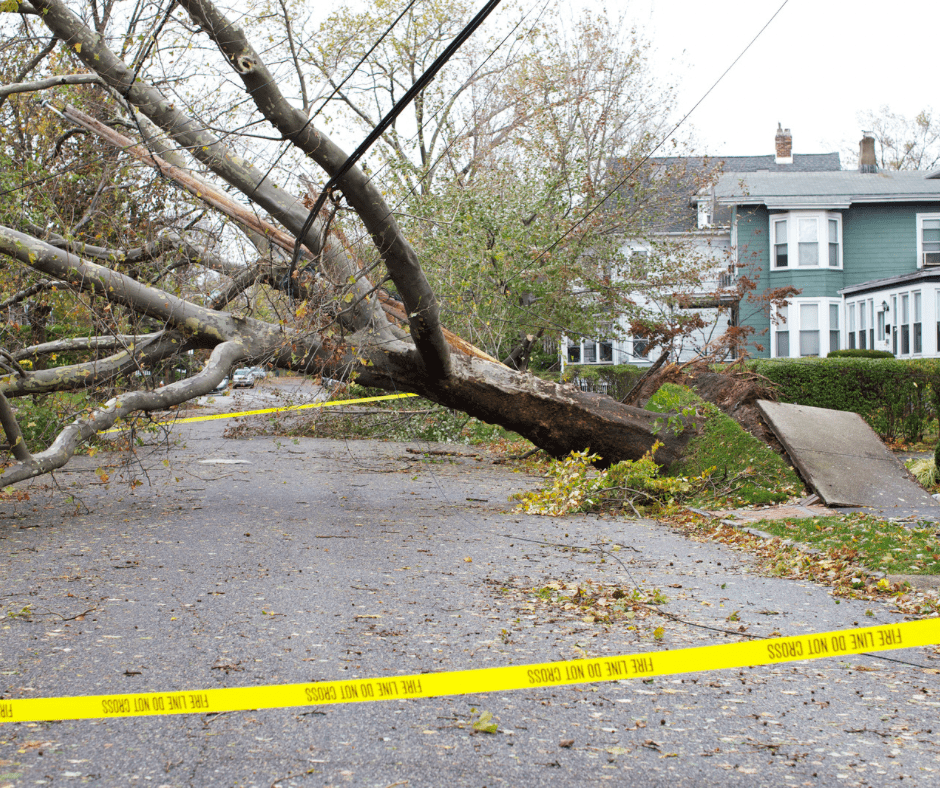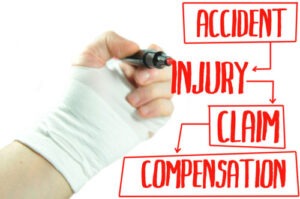
When hurricanes strike, they often leave a trail of destruction behind—damaged homes, flooded properties, and a long road to recovery. For many Florida homeowners, this means turning to their insurance policies to help cover the cost of repairs and restoration. However, there’s an important yet often misunderstood aspect of your hurricane insurance policy: the duty to mitigate damages.
In the aftermath of a hurricane, many policyholders are unaware that they are required to take reasonable steps to minimize further damage to their property. This legal concept, known as the “duty to mitigate damages,” can significantly affect your insurance claim and the compensation you receive. In this article, we’ll explore what it means to mitigate damages, why it’s essential for your hurricane claim, and how Viles & Beckman, Florida’s 5-Star Law Firm, can assist you in navigating the complexities of hurricane property damage claims.
Understanding the Duty to Mitigate Damages
The duty to mitigate damages refers to the responsibility of a policyholder to take reasonable steps to prevent additional harm to their property after an insured event, such as a hurricane. Essentially, if your property has been damaged by a storm, you cannot simply wait for your insurance company to fix everything. You must take immediate action to protect your home or property from further damage.
For example, if a hurricane causes part of your roof to collapse, your responsibility doesn’t end there. You should cover the exposed area with a tarp to prevent further water damage. Failure to take such steps can lead to reduced compensation from your insurance company, as they may argue that you did not fulfill your duty to mitigate damages.


Expect More, Receive More: Legal Support That Feels Like Family
Why Is Mitigating Damages Important?
Insurance policies are designed to cover losses caused by the insured event—in this case, hurricane damage. However, they do not cover damages that could have been reasonably prevented after the fact. This is where the duty to mitigate comes into play.
If you fail to mitigate damages, your insurance company may:
- Reduce your claim payout: If you don’t take reasonable steps to prevent further damage, your insurer may only cover the initial damage and deny compensation for any subsequent harm that could have been avoided.
- Deny your claim: In some cases, insurance companies may argue that they cannot determine the extent of the damage caused by the hurricane versus the damage caused by your failure to mitigate. This can result in a denied claim.
To avoid these potential issues, it’s crucial to understand your responsibilities and act quickly after a hurricane.
What Steps Should You Take to Mitigate Damages?
After a hurricane, your first priority is the safety of yourself and your loved ones. Once it’s safe to return to your property, here are some practical steps you can take to mitigate further damage:
- Cover Broken Windows and Roof Damage If your windows are shattered or your roof is damaged, cover the exposed areas with tarps or plywood. This will help prevent rainwater from entering your home and causing additional water damage.
- Remove Debris Clear any debris that could cause further damage to your property, such as fallen branches or damaged furniture. Be sure to document the condition of your property before removing anything for insurance purposes.
- Dry Wet Areas If your home has been flooded, start the drying process as soon as possible to prevent mold growth. Use fans, dehumidifiers, and other drying equipment to minimize water damage.
- Board Up or Secure Openings If there are any openings that could lead to additional damage, such as broken doors or windows, board them up to prevent further exposure to the elements.
- Turn Off Utilities if Necessary If your home has suffered significant damage, it may be wise to turn off the water, gas, or electricity to prevent fires or further flooding.
- Document Everything Take photos and videos of the damage before and after mitigation efforts. Keep receipts for any materials you purchase or services you hire to assist in the mitigation process. This documentation will be essential when filing your insurance claim.
Common Misconceptions About Mitigating Damages
Many homeowners may believe that their insurance company will handle everything, but that’s not the case when it comes to mitigation. Here are some common misconceptions about the duty to mitigate damages:
- “I don’t have to do anything until my insurance adjuster arrives.”
Waiting for your insurance adjuster can result in further damage and lower compensation. Your policy likely requires you to take immediate steps to protect your property, even before the adjuster arrives.
- “The insurance company will cover everything, even if more damage occurs after the storm.”
Insurance companies will typically only cover the initial damage caused by the hurricane. If additional damage occurs because you didn’t take reasonable steps to prevent it, they may reduce or deny your claim.
- “Mitigating damages means fixing everything myself.”
You are not required to make full repairs immediately. Instead, your duty is to take temporary measures to prevent further damage until permanent repairs can be made.
The Role of Insurance Companies in Mitigating Damages
Insurance companies are well within their rights to expect policyholders to mitigate damages. However, they often use this requirement as a way to minimize claim payouts. It’s important to understand that the term “reasonable” is subjective. What’s considered reasonable for one homeowner may not be the same for another, especially in the chaotic aftermath of a hurricane.
If your insurer claims that you failed to mitigate damages, they may reduce your compensation or deny your claim entirely. This is where having a knowledgeable legal team on your side can make all the difference.
How Viles & Beckman Can Help with Your Hurricane Claim
At Viles & Beckman, we understand that dealing with the aftermath of a hurricane is overwhelming. Insurance companies may try to take advantage of policyholders who are unfamiliar with the nuances of their policies. Our team is here to ensure that doesn’t happen to you.
We help homeowners by:
- Reviewing Your Insurance Policy: We’ll go through your policy with you to ensure you understand your obligations and what your insurer is required to cover.
- Guiding You Through Mitigation Efforts: We’ll advise you on the steps you need to take to fulfill your duty to mitigate damages and help you document everything for your claim.
- Fighting for Full Compensation: If your insurance company tries to reduce or deny your claim based on failure to mitigate damages, we’ll fight to get you the compensation you deserve.
Call Viles & Beckman Today
Hurricane damage can be devastating, and navigating the insurance claims process can add unnecessary stress during an already difficult time. If you’re dealing with property damage from a hurricane, don’t let your insurance company shortchange you. At Viles & Beckman, we fight for our clients as if they were family, ensuring justice and excellence every step of the way.
Contact us today to speak with a specialist trained in claims like yours. Let us help you get the compensation you deserve.







